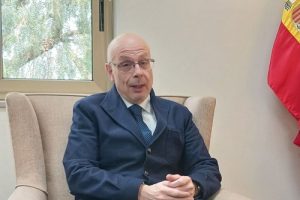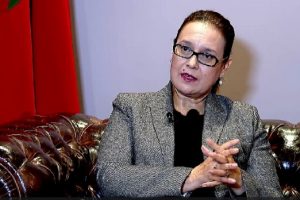
To highlight the central role of coffee in the socio-economic development of Africa, the Heads of State of 11 African coffee-producing countries, including Angola, Cameroon, Central Africa, Congo (DRC), Côte d’Ivoire, Benin, Gabon, Kenya, Madagascar, Uganda, and Tanzania, convened on December 7, 1960, in Antananarivo, Madagascar. They collectively decided to establish the Inter-African Coffee Organization (IACO).
Shortly after its establishment, all African coffee-producing countries joined IACO, recognizing the importance of unified efforts to address challenges within the African coffee industry, particularly in processing and marketing.
Today, IACO is an intergovernmental organization consisting of 25 African coffee-producing countries, including Angola, Benin, Burundi, Cameroon, Congo, Central African Republic, Democratic Republic of Congo, Côte d’Ivoire, Ethiopia, Gabon, Ghana, Guinea, Equatorial Guinea, Kenya, Liberia, Madagascar, Malawi, Nigeria, Rwanda, Sierra Leone, Tanzania, Togo, Uganda, Zambia, and Zimbabwe.
Our guest today is Ambassador Solomon Rutega, the Secretary-General of the Inter-African Coffee Organization (IACO). Before assuming his current role, Rutega played a pivotal role in establishing the African Fine Coffees Association (formerly the East African Fine Coffees Association). He is also known for his contributions to Chinese-African relations in the coffee sector, having served as Uganda’s ambassador and consul general in Guangzhou, China.
During his recent interview with the Ethiopian Herald, Rutega discussed IACO’s mission to promote coffee and explore ways to increase coffee export earnings. Enjoy the read!
What is the primary goal of IACO?
IACO is the organization representing 25 African coffee-producing countries on the continent. Its mission is to transform the African coffee sector through value addition, with a vision anchored on four strategic objectives.
First, we play a key role in advocacy, encompassing political, economic, and social aspects across the board. The second objective is to coordinate coffee research on the continent, primarily addressing productivity and production issues to combat the threats posed by climate change.
The third objective involves creating public-private partnerships to promote coffee consumption culture on the continent. Coffee consumption in Africa, aside from Ethiopia, remains low, and we aim to increase consumption, particularly among the youth population, to reduce dependence on exporting green beans abroad.
The fourth objective is capacity building, focusing on training youth and women in areas such as coffee barista, brewing, and roasting. There is a need to educate people on coffee and instill a coffee culture, as many lack knowledge of its cultivation, processing, and roasting. With a growing number of cafes opening in urban areas, there is also a need for youth employment.
We are establishing training centers in member states, with Ethiopia leading the way with a successful coffee training center that serves as a benchmark for other countries. In summary, this is the role of my organization, and as the head of the mission, this is what I focus on.
When was the organization IACO established?
IACO was established on December 7th 1960, in Antananarivo, Madagascar by Heads of State from 11 African coffee countries. It is one of the oldest pan African intergovernmental organizations representing 25 producer countries and almost 50% of the global coffee producers. The genesis behind its establishment was the realization of the significant potential of the coffee sector as a key contributor to the economic development of the newly independent African countries in 1960. The main objective of IACO at its inception was to study the problems relating to African coffee, particularly its production, processing and marketing with a view to ensuring that Africa’s quota was guaranteed
Initially headquartered in Paris to serve the European market, the headquarters were later moved to West Africa in Côte d’Ivoire, Abidjan in 1975. From 1960 to 1989, IACO operated under a quota regime, ensuring that Africa’s quota accounted for about 30% of global total exports.
With the liberalization reforms starting in 1989, IACO adapted to the free market regime. In recent years, the focus has shifted towards the transformation of the sector through value addition, moving away from solely exporting green beans. This new vision being implemented is aligned to the AU Agricultural Agenda 2063.
With the ratification of the 2020 coffee agreement and AU specialized agency status now operational, other African coffee-consuming countries on the continent can become members, potentially increasing the number of IACO members states from 25 to 55, which is the total number under the African Union. IACO aims to reach this level in the future.
Can you mention some of the achievements that the organization has been able to achieve?
Yes, in the last 36 months, since I took up this assignment as SG, we have made a few remarkable achievements in all the areas mentioned earlier under the strategic objectives. The first one was getting the political leadership on the African continent to come together on a unified platform at the G25 Africa Coffee Summit.
This was the first time in IACO’s history where heads of state sat down under the summit to discuss how to address industry challenges. Previously, discussions would only reach the ministerial or technical level. The biggest achievement, in my opinion, is this initiative of political heads of state meeting annually to tackle industry issues.
The outcome of this initiative is why we are here. The leaders agreed that coffee should be adopted as a strategic commodity due to its importance in the global market and the economies of African countries. Currently, an estimated 12 million households of our populations depend on coffee for their livelihoods and it generates significant amounts of foreign exchange earnings for our economies. At the same time, the global traded value of the business is estimated at 0.5 trillion -USD dollar with 4 billion cups consumed daily . So why wouldn’t our leadership invest in such a crucial sector? This summit has brought this issue to the forefront, making it one of the most notable achievements in the last 36 months.
At the advocacy level, the second achievement is the introduction of the Africa Coffee Week. This initiative has brought the private and public sectors together for the first time to have discussions under a unified platform. The first event was successfully held in February in Addis Ababa, where the private sector association’s representing Eastern, Central, Southern and Western Africa participated along with government officials from member states and IACO. This merger of policy and promotional events with the private and public sectors will greatly assist in addressing some of the prevailing challenge’s affecting the industry and explore new opportunities for transformation.
Another achievement is the establishment of Coffee Training Institutes in member states. We have set up several affiliates in the region, working with universities to build capacity through training centers. We have opened a center in Abidjan with the private sector called the Inter-Africa Coffee Training Institute (IACTI). The focus is on training youth, especially women, to be able to work in coffee shops, hotels, and restaurants. Employment and job creation are key goals, and we are pleased with the success of the school training centers.
Other achievements include intangible benefits like networking opportunities that bring people together to make deals. I am happy with the progress so far. The biggest milestone is being adopted at the African Union, marking the first time coffee will be on the African agenda. These are just a few of the highlights.
What does the Kampala Declaration mean for IACO?
The Kampala Declaration is where the heads of state met in Kampala again to recommend and request the African Union to adopt coffee as a strategic commodity.
The first one was the Nairobi Declaration, which took place in May 2022. That was the initial conversation starter.
The second one, was held in Kampala on August 8th 20203 and hosted by His Excellency President Yoweri Museveni, who has been a champion of the transformation of the African coffee sector through value addition. The Kampala summit was a continuation to galvanize and lobby more African leaders to support this request to adopt coffee as a strategic commodity under the AU agenda and designate IACO as the AU Specialized Agency. Subsequently, the declaration was presented to the relevant AU organs for consideration and after 6 months of lobbying was unanimously adopted by the AU Heads of State at the 37th Ordinary Session of the AU Assembly of Heads of State which was held from February 18th to 20th 2024 in Addis Ababa.
Producing quality coffee is a significant challenge for many African countries. What support does IACO provide to these countries?
IACO collaborates with the national coffee authorities of its member states in providing information and a platform for knowledge sharing on matters of policy, regulatory and good agronomic practices. For example, the Ethiopian Coffee Tea and Authority (ECTA) represents Ethiopia at IACO. We work directly with ECTA in exploring ways to support the coffee industry at the national level through partnerships for projects and technical support to enhance quality, productivity, and address other value chain issues. The process involves IACO, the National Coffee Authority, and the execution of quality and value-added initiatives.
What challenges has IACO faced so far in terms of coffee?
IACO is a non-profit membership organization that generates its core revenue from membership subscriptions and like many other intergovernmental organizations is faced with the challenge of getting members to pay their subscriptions on time. This inhibits the organization from providing much needed support to members . Another challenge is collecting economic data to conduct economic analysis. We are working on developing a database to improve our economic analysis publications.
Inadequate funding to build capacity is another challenge, but again this is a common issue for government organizations. We need to be more creative and innovative in increasing membership and attracting people from other countries, particularly consuming countries. Being under the AU will provide us with a platform to achieve this. I am optimistic about the future.
The Africa Free Trade Area is now being implemented on our continent. What is the role played by IACO? In light of this, what is IACO’s plan to integrate all African countries in the coffee industry?
We signed a Memorandum of Understanding with the AfCFTA two years ago and now as an AU specialized Agency , we shall further develop the coordination to a higher level especially when it comes to market access and strengthening of regional coffee value chains. As we start to export coffee inter-regionally, we will need a certificate from the AfCFTA. For example, Ethiopian coffee can be exported directly to other consuming markets on the continent, such as those in Northern and southern Africa. This will be facilitated through the AfCFTA concession framework. At the same time, other AU organs in the value chain we will coordinate with include the African Organization for Standardization (ARSO), Trade Insurance, Africa Exim Bank, and Africa Development Bank.
You have already established excellent relations with the rest of the world regarding coffee. What is your plan for promoting African coffee worldwide?
We will strive to open new markets for African coffees. For example, China, with the second-largest economy in the world and a population of 1.4 billion, has a low per capita coffee consumption of 5 cups per year. However, coffee consumption is growing at 15% annually, presenting a significant opportunity for African coffees.
We will ensure aggressive promotion of coffees from IACO Member States and support African producers in establishing new partnerships and accessing emerging markets in all regions.
Research and other tasks may be part of your responsibilities. What does your organization focus on in terms of coffee-related research?
Funding for research remains a challenge, as it is not adequately supported. However, we have the Africa Coffee Research Network (ACRN), which operates under IACO. The mission is to improve research aimed at enhancing the productivity, production and quality of African coffee. This is facilitated through the exchange of scientific information in collaboration with National Coffee Research Institutes in member states. The IACO Director of Research & Development coordinates the ACRN activities which include organizing the African Coffee Scientific Conference and training for coffee scientists in member states.
Thank you for the opportunity to discuss these matters and these are the questions prepared for you for today. If you have any more points, please feel free to add.
Thanks for the opportunity and that is all I have.
Once again, thank you for your time and willingness.
BY GIRMACHEW GASHAW
THE ETHIOPIAN HERALD SATURDAY 5 OCTOBER 2024





